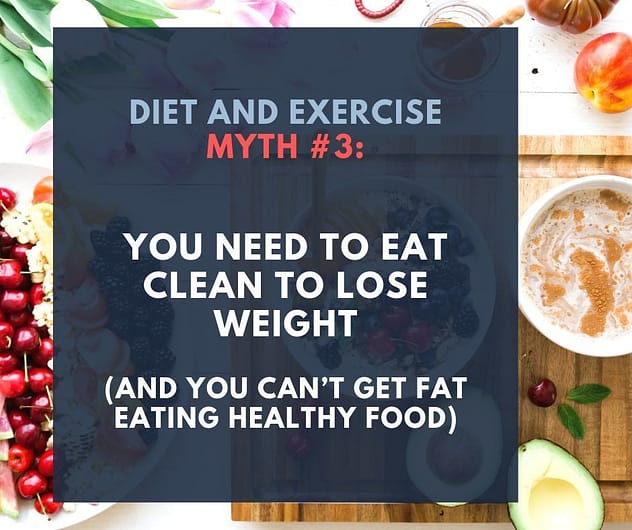- in Nutrition , Weight Loss by Todd
- |
- 1 comments
Diet and Exercise Myth #3: You need to eat clean to lose weight


You may have heard of the Twinkie Diet. A Human Nutrition professor at Kansas State University spent 10 weeks straight eating sugary cakes every 3 hours and not a lot else. He was out to prove that when it comes to weight loss, the nutritional value of the food doesn’t mean much and that it’s really all just about pure calories.
His diet over the 10 week period consisted of Twinkies, Hostess and Little Debbie snacks, as well as nutty bars, powdered donuts, sugary cereals, Doritos and Oreos. He also drank a protein shake every day as well as taking a daily multivitamin, and he did also include a very small amount of vegetables.
At the end of the 10 weeks on this ‘convenience store diet’, the professor had lost 27 pounds (12 kilograms).
He had carefully measured the calorie content of all the junk food he ate, and kept his total consumption to 1800 calories per day. This represented a calorie deficit of about 30% for his size, weight and activity level. That means that he was consuming about 30% fewer calories than he was burning every day.
1800 calories worth of junk food is not a physically large amount of food, because that sort of food is so calorie dense. So there’s no doubt that the professor spent a lot of his time in a state of hunger.
But the key takeaway here is that it isn’t the quality of your food that makes the biggest difference to weight loss, it’s the quantity of calories in that food (compared to the total number of calories that you burn).
VitalCapacity.live exists to help ordinary people like you transform your mind, body and spirit. If you have any questions or feedback, please don’t hesitate to get in touch with me.
You can contact me here: Todd@VitalCapacity.live.
Check out my Body Transformation Blueprint digital course. It teaches ordinary people how to look good, feel great, and get the body you've always wanted.
Ciao for now,


[…] myth is closely related to Myth #3, which was around the idea that the quantity of the food you eat is much more important for weight […]